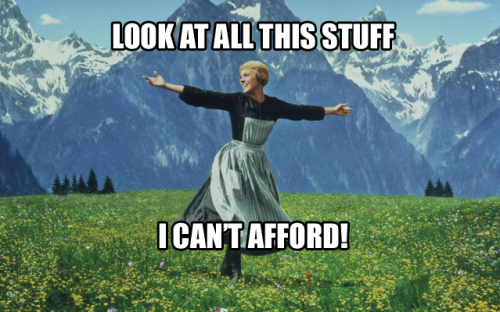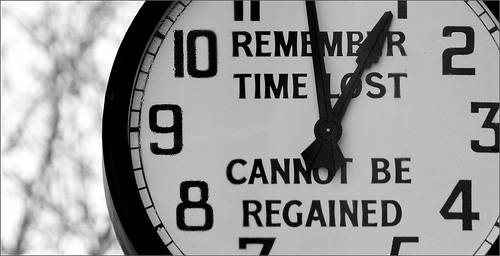By Scott Dailey
Imagine this scenario:
You just finished making your product presentation and yes, it went as you planned  as you hoped even. Your buyer now knows the costs, and was sincerely engaged throughout. As for the other stakeholders in attendance, they leaned forward often and peppered you with good questions. Things looked good. As you were shaking hands with everyone, you even made sure to ask if you could field any lingering questions. After all, youÂre not new to closing and Âno, no, no, is all thatÂs uttered. You, for a moment, feel triumphant.
ÂNow to close, you silently meditate.
But suddenly, just as youÂre getting ahead of yourself  just as youÂre feeling unstoppable — the key decision maker pipes in.
ÂThank you Scott. Very thorough presentation. I learned a lot. Of course, IÂm going to need to think about it. And besides that, I also have a few other vendors BobÂs located, that I want to have a look at. Yah know; before we decide anything.Â
Imagine this happening to you. ItÂs probably not hard to do at all. Surely you have encountered this very set of circumstances. Fired out of a cannon, you slay the room and ready your kill shot when seemingly out of absolutely nowhere, youÂre faced with this very objection and its brawn threatens the close, the win, YOU!
Well then what would you say? What sort of ironclad retort would you have prepared ahead of your meeting? I mean, surely you would have had something cued up, right? What go-to answer would be cocked and loaded, ready to dispatch with absolute haste this oh-so common sales hurdle?
Remember that, in this scenario, you almost certainly spent hours preparing your presentation and dammit, that preparation has covered well your productÂs features and has earned your audienceÂs respect. Kudos! But at that pivotal moment, when your buyer suddenly tells you, Âno, how would you have remembered that meeting? How would you recall that particular opportunity? Your presentation had done the heavy lifting. Your buyer believed you. Believed in you. Yet the objection emerged. What didnÂt you do? Or said differently, what did you not, perhaps, do well enough?
Would your meeting be remembered for your failure to produce an irrefutable argument that squashed that objection as it grew wings? Would you, at that moment, convert your prospect into a buyer?
What DidnÂt I Do?
Now letÂs be clear on something. WeÂve all heard this objection registered in a thousand different styles. But every time you do hear it, no matter the delivery or the packaging, I assure you, itÂs the same old objection and an easy one to negotiate if you know why itÂs being tendered.
You are getting this objection because you didnÂt convince your buyer sufficiently that the benefit to using your service outweighs the benefit of keeping the money it costs to buy it. If your buyer values the money it costs to purchase from you more than the value your solutions yield your buyer, then you have no chance to make the sale. Only you can persuade the buyer to see value as something that has more appeal than cost. This your responsibility, not your audienceÂs.
You cannot simply prepare a world-class presentation, do your research and hypnotize your listeners and expect that the work is done. As a matter of fact, your research must be more immersed in how to field this objection, than it ever is in showcasing your productÂs features.
Your products, their features, what makes them shine — itÂs all for you and means nothing to your buyer. You must make them see that the value had in using your solutions creates the outcomes they seek. Do this and youÂll begin to help your buyer see that retaining the funds it costs to buy from you is less critical than getting hold of your solution.
Next time you encounter this objection  no matter the flavor itÂs dipped in  try this:
“Great! I think that’s great, Sue. You should totally look at alternatives to me.
But if you’re shopping for a less expensive vendor, or what I mean is, if the continuing shopping exercise for you deals in finding the most inexpensive provider, then we don’t fit, IÂm afraid.
If you’re truly going to shop around, then look for someone who is better than me, not cheaper than me. Better than me, you won’t find. But cheaper? I can throw a rock out of this conference room window right this very second and hit someone in the head who will do less for you, for less than me.”
If we’re tabling next steps because you want it less expensively, then this isn’t a fit, Sue. I’m the best. And I want to be clear on this point: I wouldn’t begrudge you a bit for looking for better than me. I actually encourage that.
But I don’t compete with cheaper than me. I won’t compete with it.
How about this: you’re the best at what you do, Sue and IÂm the best at what I do. Let’s get this right the first time?Â
In this scenario, Sue may actually believe she needs to shop around for competitive pricing, while never realizing sheÂs mistakenly comparing value with cost. There is no comparison to be made between average outcomes and successful ones.
Lead with value in everything you present to your buyer. This will not only help keep the conversation in your control, which is critical to the sales process, but it will also assure your prospects that benefits, when satisfying the buyerÂs wishes, always outweigh cost.
Sales professionals must believe passionately that they have an obligation to get buyers to stop asking questions about cost by producing answers that deal in value. Therefore, every action you take should be meant to provide satisfactory answers to questions your buyer may not even know he or she is asking.





